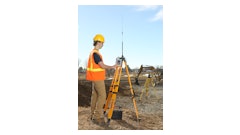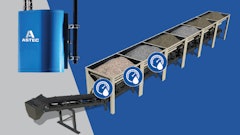Associated Builders and Contractors released its seventh annual Merit Shop Scorecard, a ranking based on state policies and programs that encourage workforce development, grow career and technical education, strengthen careers in construction and advocate for fair and open competition for taxpayer-funded construction projects.
Florida returned to the top of the rankings this year based on the state’s continued encouragement of fair and open competition and innovative approaches to recruiting and upskilling craft professionals, many of whom see construction as a worthwhile alternative to careers negatively impacted by the pandemic. A year-to-year high performer, Florida ranked fourth in 2020 and claimed the top rank in 2018 and 2019. Arizona followed Florida in second place this year, down from first in 2020.
The Top 10
- Florida
- Arizona
- South Carolina
- Georgia
- Wisconsin
- Arkansas
- Kentucky
- North Carolina
- Iowa
- Idaho
The 2021 Building America: The Merit Shop Scorecard rates state laws, programs, policies and statistics in seven categories: project labor agreements, prevailing wage laws, right-to-work laws, public-private partnerships, workforce development, career and technical education and job growth rate.
“The resiliency of our outstanding industry has been on full display throughout the year,” says Ben Brubeck, ABC’s vice president of regulatory, labor and state affairs. “From economic and regulatory headwinds to talent shortages, supply chain bottlenecks, high inflation rates and a lingering pandemic, ABC member companies continue to invest in their people and deliver work safely, ethically and profitably. The top states in this year’s rankings, like Florida and Arizona, set the standard nationwide in policies and programs that enable our contractors to do what they do best in delivering work that betters our communities. Equipping the construction workforce with the tools to succeed, such as policies that create an exemplary business environment for merit shop construction contractors, is important for local and nationwide economic stability and the future vitality of this industry, especially considering the expected increase in public construction projects in the coming year.”
Notable drops in the 2021 rankings include Massachusetts, which fell eight spots due to a decreased investment in workforce development and subsequent outcomes, and Virginia, which fell six spots due to its final implementation of both a costly and unnecessary prevailing wage and the repeal of policy of government neutrality on project labor agreements. The bottom tier of states includes Alaska, Massachusetts, Hawaii, Illinois and Washington, each receiving F ratings in project labor agreements, prevailing wage and right-to-work policies.

























